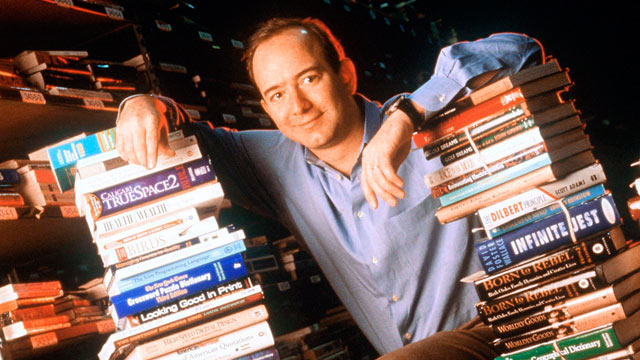It’s hard to believe now, but in the early days of Amazon, Jeff Bezos had a tough time hiring.
While he had some extreme methods, he refused to compromise on them even when the company was in desperate need to staff up. Bezos stuck to his guns and turned down candidate after candidate, much to the frustration of his lieutenants.
What must have felt unbearable in the short term turned out to be absolutely critical in the long term, as Amazon built the unique and high-performing company culture that made it the prime tech giant it is today.
1. Tell people that they shouldn’t work at your company
While most managers hire by telling candidates that their company is the happiest and most amazing place on earth, Bezos does the opposite.
Bezos would warn job candidates that “it’s not easy to work here.” Even in 1997, during the dot-com boom, Bezos’s anti-pitch was stark and to the point: “You can work long, hard, or smart, but at Amazon.com you can’t choose two out of three.”
Even though this scared some candidates away, it worked in the long run because those who chose Amazon did so in spite of the anti-pitch. They knew what they were getting into, they had in fact self-selected for the challenge, and so they were exactly the type of people Bezos wanted.
2. Interview 50 people and don’t hire a single one, if that’s what it takes
In the early days of Amazon, Bezos famously said, “I’d rather interview 50 people and not hire anyone than hire the wrong person.”
This takes incredible discipline. It’s very tempting to change your hiring criteria or lower your standards if no one is meeting the bar. Yet standing your ground at this young business stage is particularly critical.
Saying “no” to every potential hire when nobody meets your standards is an extreme act that’s absolutely vital because “cultures aren’t so much planned as they evolve from that early set of people.”
3. Hire failures
When Bezos launched AmazonFresh, its grocery delivery service, he chose a surprising team to lead it. He didn’t choose successful supermarket or delivery executives. He chose failures.
Bezos hired the leaders behind Webvan, a former grocery delivery service that failed spectacularly during the first dot-com era. The thing is, to Bezos, failure isn’t a scarlet letter that you wear around that makes you un-hirable. When you’re innovating, failure isn’t optional. “Failure comes part and parcel with invention,” Bezos emphasized in his 2013 shareholder letter.
Conventionally successful people are often those who’ve played it safe and haven’t tried to innovate. Hire people who’ve failed at doing something bold, because they’re the only ones who’ll succeed at something bold.
4. Ask yourself these three questions:
- Will you admire this person?
- Will this person raise the level of effectiveness?
- Along what dimension might this person be a superstar?
Back in his 1998 letter to shareholders, Bezos talked about how he started Amazon to change the world. If your mission is to build an app, you need to bring on people who can build apps. If your mission is to change the world, you need to think long term and hire extraordinary people.
By asking hiring managers to consider these three questions, Bezos ensured that new employees would not only meet an incredibly demanding standard but add value to and enrich the growing team in the long term.
In order to do great things and make history, you have to keep building up.
5. Set the Bar High
In Bezos’s own words, “Setting the bar high in our approach to hiring has been, and will continue to be, the single most important element of Amazon.com’s success.”
From the very beginning, “Jeff was very, very picky,” says Nicholas Lovejoy, Amazon’s fifth employee. From five employees to now over 100,000, that pickiness has persisted, which has allowed Amazon to build a company culture that lasts and improve the quality of the company with each hire.
In all hiring criteria, Bezos held candidates to the highest standards and it proved to be the basis of the company’s success. Bezos’s motto is this: “every time we hire someone, he or she should raise the bar for the next hire, so that the overall talent pool is always improving.”
When employees visualize the company in five years, according to Bezos, they should be able to look around and say, “The standards are so high now — boy, I’m glad I got in when I did!” The result is a company that evolves to become better and stronger.

